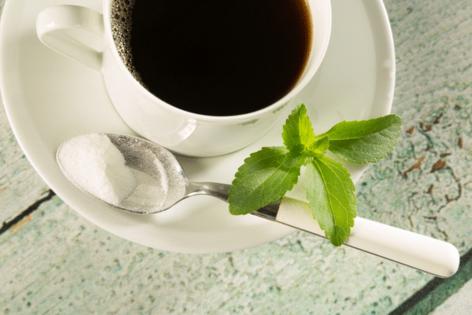On Nutrition: Sugar vs. non-sugar sweeteners
Published in Nutrition
Never a dull moment — or lack of confusion — in the nutrition world. Of late, it revolves around our intake of sugar, especially sugars added to our food.
We’re stilll waiting for the newest Dietary Guidelines for Americans, but the current version recommends children younger than 2 years of age not be given any foods or beverages with added sugars. And the rest of us? No more than 10% of our total daily calories. That’s about 50 grams of sugar a day if you check “Added Sugars” on a food label.
If that sounds like a lot, realize that a 12-ounce can of regular soda tips in at 39 grams of added sugar. And the term “added sugars” is a big category, according to the Food and Drug Administration. It includes all kinds of table sugar, honey, agave, molasses, corn syrup and high fructose corn syrup.
No wonder many of us have turned to non-sugar substitutes over the years. In fact, our national intake of sugar has declined steadily over the past 20 years or so. And not surprisingly, our intake of non-sugar sweeteners (NSS) has increased.
Is this good? That’s what I hoped to learn in a recent review of the latest scientific evidence on added sugars and their non-sugar counterparts presented by Allison Sylvetsky, associate professor in the Department of Exercise and Nutrition Science at George Washington University.
According to Sylvetsky, what we know is that we don’t know enough. One of the issues that makes it difficult to assess the health differences between real sugar and non-sugar is the myriad of products out there. Some, like sorbitol, xylitol or mannitol, have calories. Others like aspartame (NutraSweet, Equal) or sucralose (Splenda) are calorie-free. Some, like stevia and monk fruit, are derived from plants. Others are manufactured.
To date, most of the research studies lump all these products together. So not surprising, the results are confusing. For example, there is evidence that choosing a food or beverage sweetenend with a non-sugar substitute in place of one sweetened with sugar helps lower one’s calorie intake. Duh.
Yet there is also evidence that choosing a diet beverage instead of water tends to increase one’s daily intake of calories.
Essentially, states Sylvetsky, there is no good data to know for sure which, if any, non-nutritive sweeteners may or may not be harmful.
So what’s the best course of action for now? Select foods and beverages with minimum amounts of both added sugars and non-sugar substitutes, she suggests.
And remember, says Sylvetsky, “For every action, there is a reaction." As we have learned in the past with diet recommendations, sometimes substituting one thing for another has unintended consequences.
I look forward to more study on this topic. In the meantime, remember what my grandfather always told me: “Too much of anything is not good for you.”
©2025 MediaNews Group, Inc. Distributed by Tribune Content Agency, LLC.










Comments